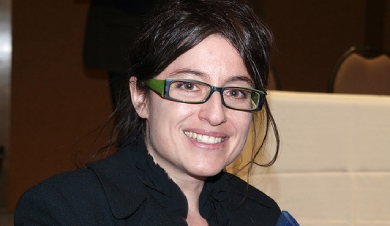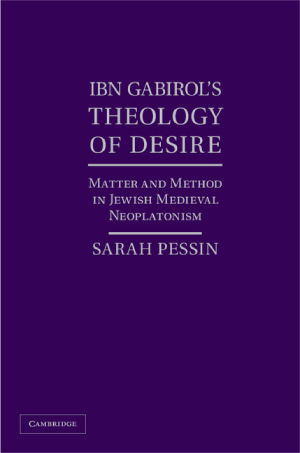Ibn Gabriol's Theology of Desire
Philosophy Professor, Sarah Pessin, published by Cambridge University Press
Drawing on Arabic passages from Ibn Gabirol's original Fons Vitae text, and highlighting philosophical insights from his Hebrew poetry, Sarah Pessin, PhD, develops a "Theology of Desire" at the heart of Ibn Gabirol's 11th century cosmo-ontology, challenging centuries of received scholarship on the "Doctrines of Divine Will and Universal Hylomorphism."
Pessin rejects voluntarist readings of the Fons Vitae as opposing divine emanation, as she emphasizes uniquely "Empedoclean" notions of "Divine Desire" and "Grounding Element," alongside Ibn Gabirol's use of a particularly Neoplatonic method with apophatic (and what she calls "doubly apophatic") implications. Pessin in this way reads claims about matter and God as insights about love, desire, and the receptive, dependent, and fragile nature of human being.
Pessin re-envisions the entire spirit of Ibn Gabirol's philosophy, moving us from a set of doctrines to a fluid inquiry into the nature of God and human being—and the bond between God and human being in desire.
Sarah Pessin's blog entry at Cambridge University Press: Methodological Questions about how [not] to Read Ancient and Medieval Cosmology




